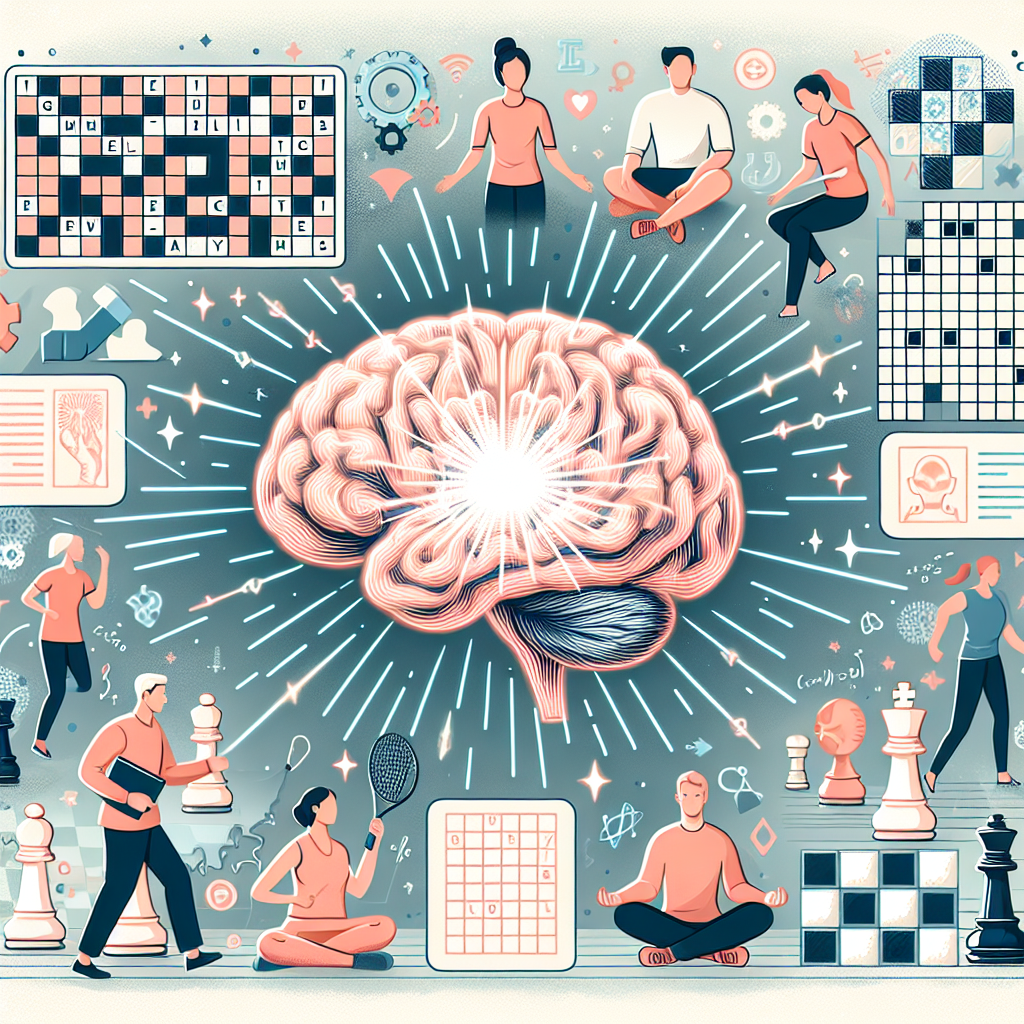In a world that’s constantly evolving and demanding more from our minds, keeping our cognitive abilities sharp is crucial. Just as physical exercise strengthens the body, mental exercises and brain games are essential for enhancing cognitive function, boosting memory, and ensuring overall mental well-being.
Understanding Cognitive Function
Cognitive function refers to a variety of mental abilities, including memory, attention, reasoning, problem-solving, and language skills. Factors such as age, lifestyle, and mental health can impact these functions. Thankfully, there are numerous ways to challenge and train our brains, making it easier to maintain mental agility as we age.
Why Are Mental Exercises Important?
Just like our muscles need to be worked out to stay strong, our brains require stimulation to remain sharp and functional. Engaging in mental exercises has several benefits:
- Improved Memory: Regular brain challenges can enhance brain plasticity, which is the brain’s ability to adapt and form new neural connections.
- Increased Focus: Activities that require concentration can help improve attention spans, making it easier to complete tasks efficiently.
- Stress Reduction: Engaging in mentally stimulating activities can serve as a great stress reliever, offering a break from daily worries.
- Enhanced Problem-Solving Skills: Regular brain training can equip you with better critical thinking and analytical skills.
Popular Mental Exercises and Brain Games
There are numerous exercises and games designed to enhance cognitive function. Here are some popular ones to consider integrating into your daily routine:
1. Sudoku
This classic puzzle game challenges your logical thinking and problem-solving skills. By filling in a 9×9 grid with numbers, Sudoku can help improve your attention to detail and memory.
2. Crossword Puzzles
Crosswords not only test your vocabulary but also require you to think critically about clues. They can enhance your word recall and overall language ability.
3. Chess
Chess is often hailed as the ultimate brain game. It enhances strategic thinking, encourages patience, and significantly improves planning skills.
4. Memory Games
Simple card-matching games, where you try to remember where different cards are located, can greatly enhance your short-term memory.
5. Brain-Training Apps
With the rise of technology, there are numerous applications available that offer a variety of brain exercises. Apps like Lumosity and Elevate provide tailored tasks based on your performance to keep you engaged and challenged.
Incorporating Mental Exercises into Your Daily Life
Incorporating mental exercises into your daily life doesn’t have to be daunting. Here are some friendly tips to help you get started:
- Set a Schedule: Dedicate a specific time each day for mental exercises. Consistency is key!
- Make It Fun: Choose activities you enjoy. If you love reading, opt for books or articles that challenge you.
- Work with Friends: Engage in brain games with friends or family to make it more social and enjoyable.
- Keep Track of Progress: Consider keeping a journal of your activities and progress. This can be motivational.
Conclusion
Engaging in mental exercises and brain games is a wonderful way to enhance cognitive function and keep your brain sharp. With the right approach and a commitment to challenge yourself, you can improve your memory, focus, and overall mental well-being. Remember, it’s never too late to start exercising your brain—so pick an activity that excites you and dive in!
FAQs
1. How long should I spend on mental exercises each day?
Even just 15-30 minutes of focused mental exercises each day can yield significant benefits over time. It’s about quality rather than quantity.
2. Are brain-training apps effective?
Research suggests that brain-training apps can improve specific cognitive skills, but their effectiveness may vary based on individual users. They can be a fun way to challenge your brain!
3. Can children also benefit from mental exercises?
Absolutely! Mental exercises can help children develop critical thinking and problem-solving skills, making them beneficial at any age.
4. How can I stay motivated to do mental exercises?
Mix things up! Try different games, join a group, or challenge a friend to make it a more engaging experience.
5. What other lifestyle changes can support cognitive health?
A balanced diet, regular physical activity, adequate sleep, and social interaction can all contribute to better cognitive health in addition to mental exercises.
